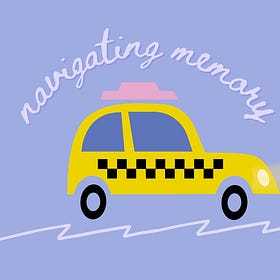Sometimes I think about how awesome it would be to have photographic memory. Imagine if I could remember every detail of every lecture I attended, every book I read, and every video I watched. I would be so powerful! Of course my memory is slightly better than Dory1, but still I feel a longing to etch every tidbit of knowledge into my brain.
Luckily, we have different ways of storing information and don’t need to remember every detail in order to learn from it. Like Dory, patient H.M. also had short term memory loss and taught us a lot about how we learn and remember things.
Henry Molaison, who is commonly known as patient H.M. was famously studied in psychology and neuroscience. He developed epilepsy after a biking accident when he was child and had severe seizures as a result. In adulthood, he decided to undergo a lobotomy procedure, where surgeons cut out parts of his brain in the temporal lobe, to help with the seizures. This made him develop anterograde amnesia, meaning he couldn’t form new memories. But much to researchers’ surprise, he still retained prior memories and was able to learn new things.
You know when you hear the same joke a few too many times and it stops being funny? Patient H.M. experienced that too, even though he couldn't remember ever hearing the joke before. He could still, in a way, remember how the joke made him feel. He could remember other things too (without knowing how he learnt them) like the Wisconsin card sorting task. In this game, he was presented with a card that had three properties: shape, shape colour, and number of shapes. He had to match his card with another by applying the current sorting rule (either by shape, colour, or number). After each attempt, the computer would give him feedback: correct or incorrect, to help him learn the current sorting rule. Unannounced, the rule would change after a few rounds. Even though H.M. couldn’t remember how and when he learnt the game, his performance continued to improve overtime. What this taught us, is that there are two types of memory: explicit and implicit.
Explicit memory is what we generally associate with memory, being able to recall facts and personal experiences. Implicit memory, on the other hand, is more unconscious, it stores motor skills learning, classical conditioning, and recognition through repetition. This is how H.M. was able to remember how to play the card sorting task, months after he first played the game. This information is stored in frontal and parietal lobe and cerebellum, in addition to the temporal lobe. Which means that even when H.M.'s temporal lobe was partially removed, he still retained information in other areas that impacted his thoughts, actions, and feelings, unknowingly. That’s why the humour left the joke.
Our implicit memory stores critical information we can’t explicitly remember but still shapes our subconscious mind. Building our explicit memory requires more energy through note taking and traditional memorization techniques. I do, occasionally, jot note tidbits of knowledge and writing these newsletters helps me remember better. I also know that intrinsic curiosity enhances information retention. But ultimately, I have limited time and energy and can't actively engage with every book, podcast and video. However, I now know that passive learning is not in vain!
I hope this knowledge re-sparks your commitment to lifelong learning, as it did mine. I’ll leave you with this hadith about some of the virtues of acquiring knowledge.
Whoever travels a path in search of knowledge, Allah will make easy for him a path to Paradise. People do not gather in the houses of Allah, reciting the book of Allah and studying it together, but that tranquillity will descend upon them, mercy will cover them, angels will surround them, and Allah will mention them to those near him. (Sahih Muslim, 2699)
I wrote another post on the brain and memory, check it out, if you haven’t already!
Maze your mind
I took ballet class once where we all stood at the barre and swung our legs from front to back and side to side (known as tendu) at the count of 5, 6, 7, 8. Every class started the same, warming up then practicing the same skills, adding nuances occasionally.
P.S. did you know that goldfish actually have good memory?! The whole three second memory is a myth!
From Finding Nemo.








Loved this! Subhannallah, the brain is such a cool thing. There is so much to learn ^-^
Your writing is always educational and inspiring… I love it!